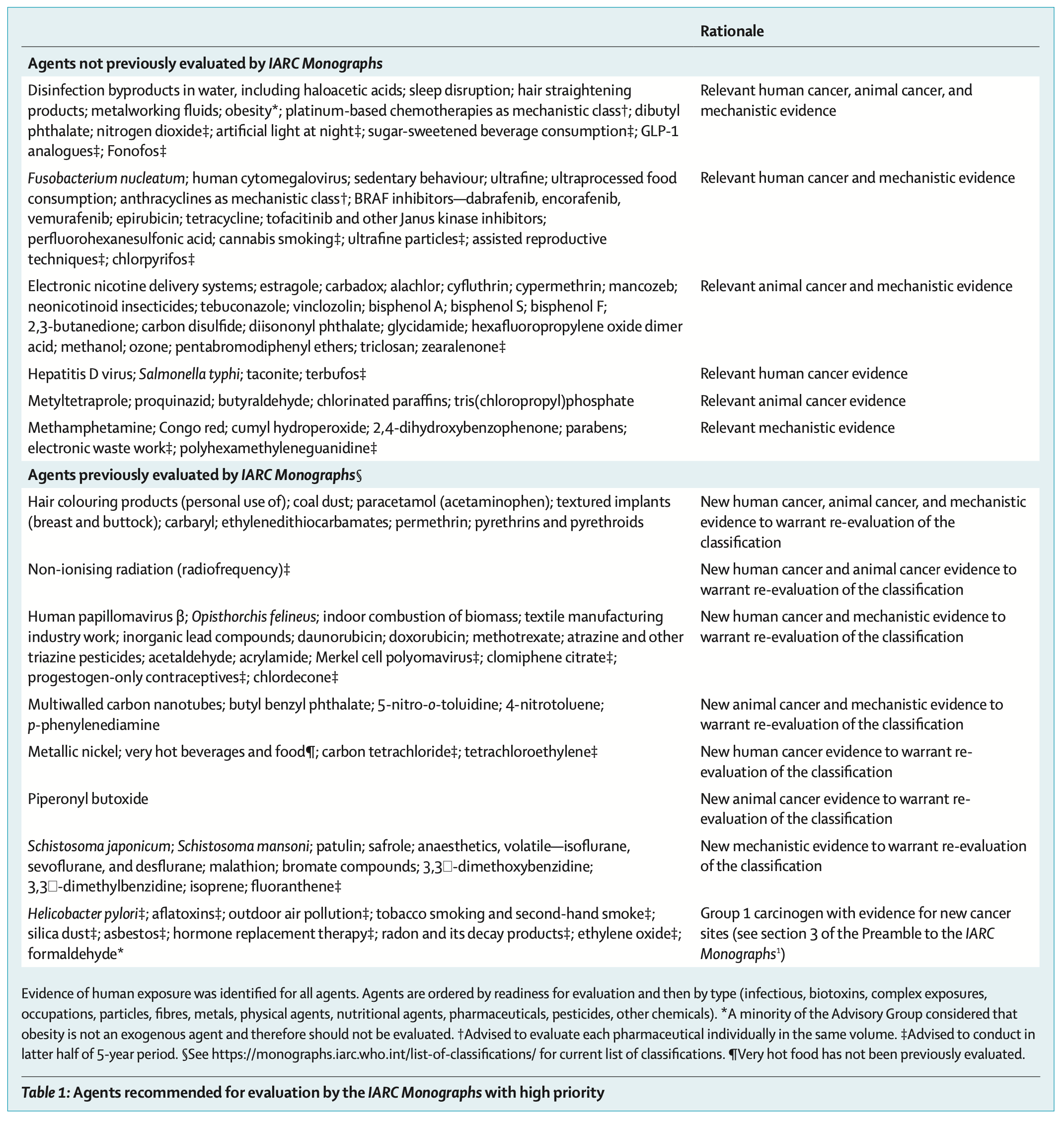IARC Again Asked to Review RF Cancer Risk, Just Not Right Away
Same Advice Was Given in 2019
An advisory group to the International Agency for Research on Cancer (IARC) has —once again— recommended a new assessment of the cancer risk posed by RF radiation. RF is one of about a hundred agents listed as “high priority” for evaluation over the next five years, 2025-2029.
The panel, made up of 28 independent scientists from 22 countries, met last month in Lyon, France (IARC’s hometown), to consider more than 200 agents that had been nominated for evaluation or reevaluation. The panel’s recommendations were announced yesterday in the news section of Lancet Oncology and an IARC press release.
Others on the high-priority list include acetaminophen (Tylenol), methamphetamine, bisphenols, hair dyes, the hepatitis D virus and smoking cannabis. The full list is below.
RF was deemed to be less urgent than most of the others on the list. In a footnote, the panel advised that it and a small number of the other high-priority agents (for instance, GLP-1 analogs and cannabis smoking) should not be reviewed until the second half of the five-year period, that is, not until late 2027, at the earliest.
Even so, IARC cannot possibly evaluate all those nominated as high priority. Each review is long and expensive: A panel of experts must prepare a comprehensive analysis which is later published as a Monograph. When completed, a Monograph typically runs hundreds of pages and includes a vast number of references. The agency can only address a small proportion of the recommended agents over a five-year period.
Elisabete Weiderpass, the director of IARC, and her staff will decide which ones make the cut.
In May 2011, an IARC committee evaluated RF at an eight-day meeting in Lyon and found the radiation to be a possible human carcinogen. (IARC’s RF Monograph was published in 2013.)
Déjà Vu
In 2019, this same advisory panel (albeit with a different membership) put RF on the list of high priority agents for reevaluation during 2020-2024. Here again, the panel asked that a new review wait until the second half of the period. This was said to be a political compromise among the panel members, as is likely the case for the new list.
But the reevaluation never happened.
Weiderpass, who became IARC director in 2019, has been under pressure to green light a new review of RF after a long-term animal study carried out by the U.S. National Toxicology Program (NTP) showed clear evidence that RF causes cancer. The 2011 “possible” cancer risk designation was based on epidemiological studies. The new animal data led some to argue that IARC should now raise the RF risk level to “probable” or higher.
In late 2022, Weiderpass floated the idea of preparing a new RF Monograph before the end of this year. But instead, she kicked the can down the road. She said that she wanted to wait for the results of a partial replication of the NTP study under way in Korea and Japan.
None of the members of IARC’s advisory panel has done much work —if any— on RF or other types of non-ionizing radiation. The only participant at the panel’s March meeting who is well known within the RF community is Joachim Schüz, the head of IARC’s environmental epidemiology branch. (He attended as part of the WHO-IARC secretariat.) For more than a decade, Schüz has argued that IARC’s 2011 decision on RF was a mistake. He maintains that the data did not support the possible cancer risk designation.
A more detailed report on the panel’s recommendations will be published later.
 Source: Lancet Oncology, April 12, 2024 (click to expand)
Source: Lancet Oncology, April 12, 2024 (click to expand)
